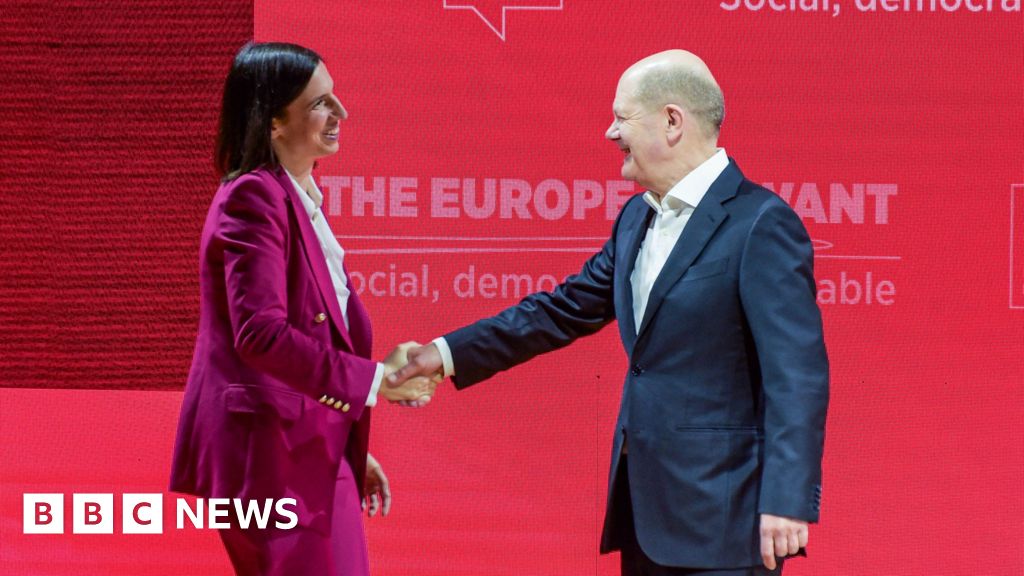“The very soul of Europe is at risk,” Spanish Prime Minister Pedro Sánchez warned fellow European centre-left politicians who had gathered in Rome ahead of a difficult EU election campaign.
At stake was how to halt the seemingly unstoppable rise of right-wing and far-right parties in the European Parliament vote, which starts on Thursday in the Netherlands and continues across all 27 EU member states until Sunday.
Only four EU member states have centre-left or left-wing parties in government and recent performances at the ballot box have been poor. The omens for the coming days are not good.
The European left is in “bad health”, says Prof Marc Lazar of Sciences Po in Paris and Rome’s Luiss University, the result of a steady decline that began in the late 1990s and early 2000s.
…
In only four countries are the Socialists and Democrats projected to come out on top - in Sweden, Denmark, Lithuania and Malta. Even then, Denmark’s Social Democrats under Prime Minister Mette Frederiksen are geared up for a big drop in support.
Hers is one of only four out of 27 member states with centre-left or left-wing parties at the helm.Spain, Germany, and Malta are the others.
Do more for the poor.
It’s really that simple. Do more for more people, and less for corporations. Deliver results.
That’s why the Right is eating everyone’s lunch: they’re promising they’ll make things better. They’re lying, of course, and their path to making things better is just basic scapegoating of out- groups, but at least they’re speaking to people’s insecurities, where the neoliberal left is clinking glasses with billionaires.
Do more for the poor.
It’s really that simple.
Netherlands had a right wing government. They messed up greatly. People voted even more right because “obviously” the previous government was actually left wing.
Perception matters a lot for a large group of people.
And it’s funny because when certain parties make promises there interpretation differs depending if they like the party or not.
E.g. making promises to improve things: who will pay for it? E.g. left wing is spending money they don’t have, or they care too much about lazy people.
If a right wing party makes a promise to improve things and financially it is pretty much certain it’ll not work out: don’t be negative, just saying that because of x/y/z.
It’s too easy to blame left wing parties for what is happening. Pretty sure there’s various causes, and people often aren’t logical or rational.
It maybe also does not help that as part of the left’s inclusion and equity stance the focus in a lot of policy and rhetoric is about marginalized groups.
If too much of your focus is on these groups then you are appearing to underrepresent the bulk of the lower classes. The fact that these people would also greatly benefit from the suggested policies does not resonate because these people don’t identify with the marginalized groups.
A little like poor and middle-class Americans that all have been fooled I to thinking they are just temporarily embarrassed millionaires and vote for tax cuts for the rich.
A Dutch lower and middle-class will vote right wing becuase “the left” only cares about asylum seekers and poor colored folks in big cities. The fact that strengthening the social security and protections also benefit them does not seem to factor in.
To me it always feels like a messaging failure. And the fact that the biggest opposition party in the Netherlands has since the right wing pvv won our national elections… only spoke about excluding POC. They forget that their messaging failed to reach a majority of lower class voters who will be exploited by the right wing policies… but hey.
What you’re suggesting are left-wing opinions though. The right is more concerned with economics, aka coorporations.
The populist right is quite happy to talk about “kitchen-table” issues.
The problem is that they usually don’t offer real solutions, preferring to says stuff like “immigrants are going to steal your kitchen table, and only I can stop them! Vote for me! Ein Reich Ein volk Ein gott!”
They might truly only care about corporations, but they lie very well.
The rise of the far right is accelerating, fuelled by inequality. At the moment in the UK Right to far right are polling at 53% and 36%, actual left leaning parties just 6% and below. The swing to the right and far right especially is dramatic in the past 15 years.
Because the political left got enamoured with corporate cash and forgot that they’re ostensibly a labour party. The spent the post-Soviet era indulging on third-way neoliberalism.
Heck, several of them are more actively hostile to actual leftist economics. Labour in the UK fought its own voters and threw elections over Corbyn, the Democratic Party in the US hates the Sanders wing more than it hates Republicans and the Canadian NDP voted for a fundraiser instead of actual lefties.
And in doing all this, they ceded working class politics to protofacists.





